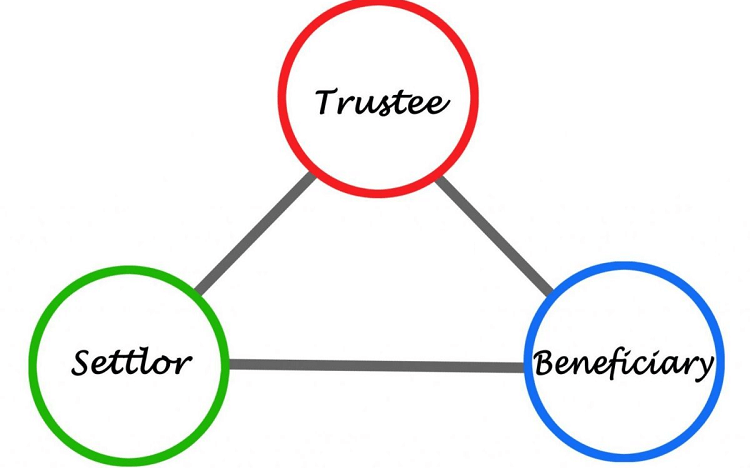The Advantages of Appointing an Offshore Trustee for Your Family Trust
The Advantages of Appointing an Offshore Trustee for Your Family Trust
Blog Article
The Different Kinds Of Offshore Trustees and Their Features Clarified
Each group-- ranging from business and professional trustees to specific and hybrid trustees-- serves unique functions that can dramatically affect trust fund management. Company trustees give durable compliance and financial techniques, while private trustees offer an individual touch, albeit with possible constraints.
Company Trustees
Business trustees play an important function in the management of trust funds, especially in offshore territories where governing structures can be complicated. These entities, generally established as corporations, have the requisite knowledge and resources to take care of trust fund properties properly, making sure conformity with neighborhood and worldwide legislations. Their structured governance permits consistent decision-making and the capability to adjust to transforming guidelines.

In addition, company trustees often have access to a broader variety of financial tools and financial investment methods, which can enhance the trust's performance (offshore trustee). Their professional method reduces threats associated with mismanagement and problems of rate of interest, as they stick to defined fiduciary requirements
On top of that, business trustees can provide specific services, consisting of tax planning, estate administration, and compliance oversight, every one of which are vital for enhancing the trust's goals. Their involvement is essential for customers seeking dependable and effective trust fund administration in complicated offshore landscapes.
Person Trustees
Individual trustees act as a vital option to corporate trustees in the administration of depends on, especially in scenarios where a personal touch and experience with the recipients might boost trust management. These trustees are usually relative, good friends, or trusted affiliates that have a deep understanding of the details requirements and characteristics of the family members or team included.
Among the key benefits of designating an individual trustee is the ability to foster strong relationships with beneficiaries. This personal link can result in more understanding decision-making, particularly when sensitive problems occur. Individual trustees might also have adaptability in handling trust properties, enabling for customized techniques that align with the recipients' values and demands.
However, possible drawbacks consist of the individual trustee's ability to deal with intricate monetary issues or legal commitments, which can result in mismanagement. In addition, reliance on someone might present risks if that individual ends up being incapacitated or dies. While private trustees can supply personalized service and understanding, cautious factor to consider must be provided to their credentials, reliability, and the prospective requirement for added assistance or oversight. Inevitably, the effectiveness of a private trustee depends upon their capability to balance personal insight with sound fiduciary methods.
Professional Trustees
Expert trustees play a critical duty in depend on management, especially for those seeking competence in complicated monetary and legal issues. These entities or people usually possess specialized knowledge in locations such as property administration, tax planning, and conformity with worldwide policies. Their professional history enables them to navigate the intricate landscape of overseas depends on, guaranteeing that the trust runs within legal frameworks while maximizing economic outcomes.
Among the main functions of specialist trustees is to supply impartiality and objectivity in taking care of count on properties. When family participants or pals take on trustee roles, this nonpartisanship helps to alleviate potential disputes of interest that may emerge. Furthermore, specialist trustees can use a degree of stability and connection that is frequently doing not have in personal trusteeship, especially in scenarios involving generational shifts or adjustments in household characteristics.
Furthermore, expert trustees are adept at maintaining careful documents and offering clear reporting to recipients. This accountability promotes depend on and self-confidence among stakeholders. Eventually, involving a specialist trustee can boost the total effectiveness visit this web-site of depend on management, guaranteeing that the settlor's objectives are honored and that the recipients receive their rightful privileges in a timely fashion.
Family Trustees
Family members trustees play a significant function in the management of trusts, specifically when the depend on is established to benefit member of the family. These trustees are typically individuals who have a personal link to the beneficiaries, such as moms and dads, brother or sisters, or prolonged family members. offshore trustee. Their intimate knowledge of household dynamics enables them to make educated decisions relating to the management of the count on assets and the distribution of benefits
One of the primary features of family members trustees is to make certain that the dreams of the trust fund maker, or settlor, are recognized. This includes adhering to particular instructions related to asset monitoring, financial investment approaches, and circulations. Household trustees may also give emotional assistance and assistance to beneficiaries, aiding them browse the complexities of count on circulations and economic matters.

The trustee should balance individual relationships with fiduciary duties, making certain fairness and openness in all actions taken on behalf of the trust fund. Ultimately, household trustees offer as guardians of the family's monetary heritage.
Hybrid Trustees
Crossbreed trustees stand for an unique blend of individual link and specialist knowledge in depend on management. This innovative approach integrates the advantages of both specific and company trustees, thus providing a customized option to meet varied customer demands. Hybrid trustees typically include a relied on relative or close friend working alongside a specialist trustee or count on business, making sure both psychological understanding and technical efficiency in handling count on possessions.

This combination proves especially helpful in complicated family members scenarios or when there are numerous recipients with differing rate of interests. Crossbreed trustees can navigate the complexities of household relationships while simultaneously employing robust financial investment approaches and take the chance of administration practices. Ultimately, crossbreed trustees function as a bridge between individual dedication and expert diligence, boosting the general effectiveness of depend on administration.
Conclusion
Company trustees provide experience and compliance, while private trustees supply personal connections. Specialist trustees emphasize unbiased property management, whereas household trustees browse the intricacies of connections along with fiduciary tasks.
Each group-- ranging from check out this site corporate and expert trustees to individual and hybrid trustees-- serves unique features that can dramatically affect trust fund administration. Business trustees give durable conformity and financial techniques, while private trustees use an individual touch, albeit with possible constraints. Crossbreed trustees often are composed of a trusted household participant or close friend functioning along with a professional trustee or trust company, ensuring both emotional understanding and technical proficiency in managing trust assets.
Company trustees provide competence and conformity, while private trustees provide personal connections. Specialist trustees stress neutral property administration, whereas household trustees navigate the intricacies of partnerships along with fiduciary tasks.
Report this page